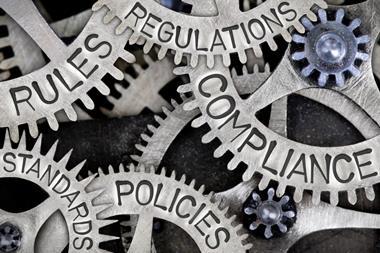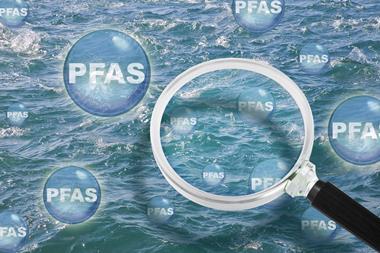The complexity and magnitude of international sanctions now demands vigilance on a new scale. Smaller businesses may not have the ready resources to tackle the issue, but the laws won’t make exceptions. So what practical steps can you take to stay safe?

In an increasingly interconnected global economy, faced with widespread political change, populism, extremism and conflict, understanding the complexities of international sanctions has never been more important.
Sanctions are a tool used by governments and supranational organisations to influence global behaviour, address human rights abuses, and correct unreasonable military actions.

In the past decade, particularly since the 2014 annexation of Crimea by Russia and the subsequent 2022 invasion of Ukraine, sanctions have grown more complex. Not to mention the ever-more complicated relationship between China and the USA, and the impact that the new Trump presidency could now have.
Against this backdrop, companies and their risk managers must be on their guard, ensuring that they understand the different types of sanctions, which ones apply to their business, and the consequences of getting things wrong.
Only then, can firms holistically manage the threats and enact strategies to mitigate or avoid sanction risks altogether.
Kurt Rowe, group head of financial crime at Intact and RSA, says: “Since the Russian invasion of Ukraine in 2022, we saw an exponential change in how sanctions are applied. Thousands of asset freezes on individuals and companies have had significant impacts on business operations globally. This is where risk managers need to be extremely vigilant.”
BEYOND ASSET FREEZES
Sanctions are restrictive measures imposed by countries or international organisations to enforce international law or foreign policy objectives and “bring regimes back into the international fold of what is deemed acceptable behaviour,” explains Rowe.
The most well-understood type of sanctions are asset freezes, which prevent individuals and entities from conducting business – for example, the UK government’s sanctions against Russian citizens and business. However, trade and sectoral sanctions add another layer of complexity by targeting entire industries, such as those imposed against Russia’s energy, metals and construction sectors.
These can have complex implications for firms, both directly in the sector that is being sanctioned, and also from a wider supply chain perspective. Companies also need to be wary of “dual-use goods”, which could get them into hot water if they leave them in breach of a sanction.
Rowe says: “Dual-use goods are subject to international control because they can be used for civilian or military purposes. There are also prohibitions on exporting certain goods to Russia that could be misused to support military activities indirectly, like salvaging washing machine parts for microchips, etc.”
“Businesses need to identify high-risk countries, like Russia, Belarus and Iran. Understanding what can be legally exported there is critical.”
This is further complicated by the fact that new sanctions are introduced all the time, and organisations must make sure that they are aware of – and following – all of them. This may mean following the sanctions of multiple jurisdictions.
For example, a UK company that is owned by a parent company in the EU, and sells some of its products in US dollars, would be subject to all three sanction regimes. This intricate landscape means that risk managers must be astutely aware of the evolving legislation.
Companies can no longer rely on simple screening tools for compliance. Rowe says: “If it’s an asset freeze, you can screen against a list… But when it comes to trade and sectoral sanctions, it’s not that easy. You’ve got to know the law, the legislation, what is prohibited.
“Businesses need to identify high-risk countries, like Russia, Belarus and Iran. Understanding what can be legally exported there is critical, as sanctions are often applied to a wide range of sectors and goods, creating complex compliance requirements. Some sectoral sanctions even prohibit insurance and brokering services, so it is important to navigate these provisions carefully.”
PROTECT AGAINST IMPACTS
For businesses, the consequences of noncompliance are severe. In the UK, a violation of sanctions legislation can result in civil penalties from the Office of Financial Sanctions Implementation and the new Office of Trade Sanctions Implementation. These fines can be as high as £1m or 50% of the transaction, whichever is greater, emphasising the financial risk these sanctions pose.
More critically, criminal violations can lead to imprisonment and disqualification of directors, impacting not only finances but also business operations and reputations.
Navigating this landscape without the appropriate compliance infrastructure is risky. Large organisations typically have robust compliance functions, while many smaller businesses do not have the resources to establish equivalent systems. Yet, smaller firms face the same risks and must develop strategies to safeguard against potential violations.
The first step is to establish a business function that is dedicated to sanctions and financial crime. Rowe says: “You might not have the funds or the resources, but that doesn’t mean that you don’t need to comply. And if you are a smaller organisation, I suggest you should nominate somebody within your compliance function to be responsible for financial crime.
“Then look at your due diligence requirements. Look at the amount of work that you do to understand who your customers are and where your products are being sold around the world.”
“You might not have the funds or the resources, but that doesn’t mean that you don’t need to comply”
Understanding the nature of the products you’re selling, and how they could be used is another essential factor. Businesses must assess whether their goods are subject to dual-use regulations, sectoral sanctions or trade restrictions.
This involves thorough research and staying informed about international agreements such as the Wassenaar Agreement in relation to dual-use goods.
Conducting comprehensive due diligence on clients and supply chains is equally vital. Knowing your customers’ operations, geographical presence and potential risk locations can shine a light on areas of concern.
Rowe adds that implementing contractual clauses to prevent onward transmission of goods to sanctioned regions can deter misuse and limit liability. Meanwhile, leveraging external advisors such as law firms can provide businesses with expertise when building financial crime programmes and interpreting complex regulations.
The geographical focus of a business’s operations is another key consideration. High-risk countries require heightened scrutiny and understanding of sanction implications. Categorising these nations in terms of risk can guide businesses in deciding where to expand and how to manage existing relationships.
Beyond national compliance, enterprises must also be aware of overlapping sanction regimes from the EU and US. American secondary sanctions, in particular, can impose restrictions on non-US companies. In extreme cases, companies that fall foul of these sanctions could be banned from trading in US dollars.
THE MORE GLOBAL WE BECOME
Ultimately, as the geopolitical climate evolves, so do the applications of international sanctions. This shifting landscape necessitates vigilance and adaptability from businesses and risk managers.
Rowe concluded: “By establishing comprehensive compliance structures, conducting thorough due diligence, and understanding the multifaceted nature of sanctions applicable to their business, products and services, companies can navigate these complexities and safeguard their operations. “As sanctions continue to grow in scope and intricacy, mitigating these risks will become a defining factor in long-term business resilience and success.”














No comments yet